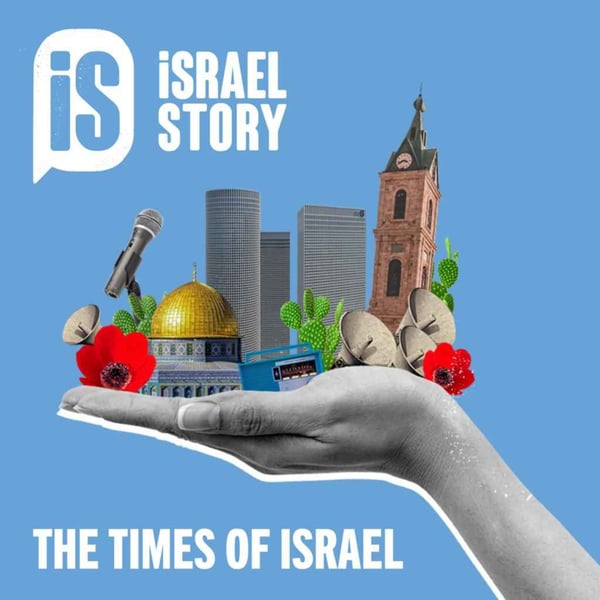142: Wartime Diaries - Mishael Zion
Israel Story
Israel Story
4.8 • 1.2K Ratings
🗓️ 18 April 2024
⏱️ 29 minutes
🧾️ Download transcript
Summary
Next week, millions of Jews around the world will sit down at their Passover tables, for what will invariably be a very different kind of seder. The timeless question of how this night, or this Pesach, is different from all other nights, and all other Pesachs, has gained an entirely new - and tragic - dimension since October 7th. And few, if any, have thought about this matter more than forty-three year old Mishael Zion, a liberal Orthodox rabbi and Jewish educator from Jerusalem.
In 1997, Mishael’s father - Noam Zion - together with his friend David Dishon - published a popular English-language Haggadah called “A Different Night.” Seven years later, Mishael joined forces with his dad in creating an Israeli version - HaLayla HaZeh: Haggadah Israelit. And this year, two decades after that Israeli Haggadah came out, Mishael and his father decided to update it, for the first post-October 7th seder.
The end song is Chad Gadya ("One Little Goat") by Chava Alberstein.
To purchase a digital copy of the Israeli Haggadah in Hebrew, click here.
To download the Zion Haggadah supplement in English, Hebrew, Spanish, Portuguese, German and French, click here.
Hosted on Acast. See acast.com/privacy for more information.
Transcript
Click on a timestamp to play from that location
| 0:00.0 | So here's the most important key to understanding the Passover Hagada. It is not a SIDUR. It is not a prayer book. |
| 0:07.5 | It is not liturgy that you were supposed to read from beginning to end and then you were allowed to eat. |
| 0:12.0 | It's an instruction manual. It's the behind-the-scenes instructions for the director of the play how to set up the production. |
| 0:21.4 | That's what it is. |
| 0:22.6 | Each portion of the Hagadan tries to tell you as a parent or as a participant as a |
| 0:28.1 | sater leader, oh, this is the part where we get to the five rabbis in B'nai B'i |
| 0:32.6 | is staying up all night. |
| 0:33.7 | This is your chance to tell stories about the best satyrs you've ever been to, the ones |
| 0:38.0 | that kept you up all night. Now we're going to get to the four children. You can read the four |
| 0:42.5 | children we're going to tell you about, or just notice the four children around your own table, |
| 0:46.9 | the different kinds of responses. And let's talk about how children respond when their parents |
| 0:50.9 | try to shove their story down their throat. We're getting to Manistana. |
| 0:54.7 | Yes, it would be so great if the five-year-old stands on the chair and sings Manistana the way they learned. |
| 1:00.2 | But really, this is a moment for asking deep questions about how is this night different from all |
| 1:04.0 | other nights. |
| 1:04.5 | It's about getting everyone interested and excited and engaged in Seder night. |
| 1:08.2 | So every portion of the Hagada is an invitation to do something. |
| 1:12.3 | If you want to read the instruction manual, you know, gay gazunt or hate, as they say, go and be |
| 1:17.0 | healthy. But it's not going to be interesting. It's not great literature. It's harder to take action. |
| 1:21.6 | It's easier to just read the text. And that's what Jews have been doing for hundreds of years. But what we've been trying to do in our series of Tzion family Hagadot is to empower people to say, |
| 1:30.2 | oh, Dayenu is an opportunity for me to be thankful for so much in my life. |
| 1:35.1 | Let's talk about that for a second. |
... |
Please login to see the full transcript.
Disclaimer: The podcast and artwork embedded on this page are from Israel Story, and are the property of its owner and not affiliated with or endorsed by Tapesearch.
Generated transcripts are the property of Israel Story and are distributed freely under the Fair Use doctrine. Transcripts generated by Tapesearch are not guaranteed to be accurate.
Copyright © Tapesearch 2025.

